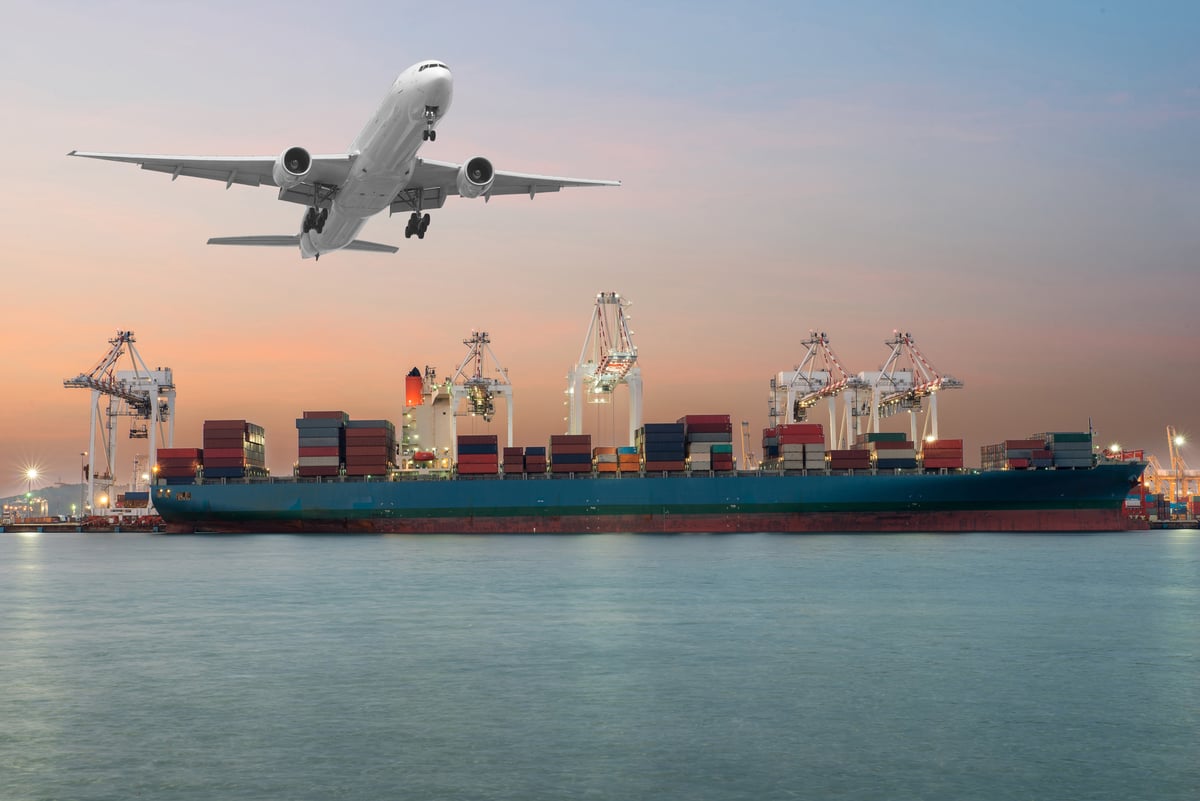The Coronavirus is going full force with the Washington Post reporting 14,840 new cases in a day along with 242 additional deaths. Reports of the problems in both air and ocean cargo shipments are now more common on the BBC, CNN, SCMP, and other main-stream media, but likely the US public was still surprised to see the following warning on the U.S. Post Office website; it seems there are no longer sufficient airlines flying to China for them to guarantee when they can deliver mail from the US to China:
“Alert: USPS will be temporarily suspending the guarantee on Priority Mail Express International destined for China and Hong Kong, effective Monday, Feb. 10, 2020 due to widespread airline cancellations and restrictions into this area.”
As of February 12, at least 39 air carriers have announced full or partial flight cancellations into China’s mainland, Hong Kong, Macau. Federal Express is flying (or not) to their 90 Chinese mainland destinations as per the daily rules of each city/province, while UPS is flying to China as conditions permit, and is also allowing their aircrews to tap-out and take sick leave or unpaid time. With some 50% of the world's air cargo carried on passenger jets rather than dedicated freighters, there are few, if any, air frames with any space available.
Xeneta has received reliable reports from our customers of space being offered at 3-4x pre-Chinese New Year rates, and was told by a major American medical instruments and product supplier, whose items are manufactured in China, that they’re increasingly unable to find space into the US for their essential medical supplies at any price.
Adding to the critical shortage of air cargo space, are Cathay Pacific and Virgin Air Australia. They have made decisions to cut service for economic reasons; CP plans to cut a third of its capacity over the next two months, including 90% of flights Hong Kong-China, while Virgin is withdrawing from Sydney-Hong Kong on March 2 due to the virus and Hong Kong’s prior civil unrest.
This loss of cargo bellies will only exacerbate the huge glut of cargo needed to be moved ‘yesterday’ now that Beijing’s restrictions on internal transportation are being removed, and workers, drivers, fuelers, and cargo handlers return to their posts.
Looking at 2018’s Top 10 Air Cargo Carriers and their current status re: China provides a sobering look at how long the air cargo crisis can continue:
No. 1 Fed Ex: flying as per virus conditions on the ground permit
No. 2 Emirates Skycargo: N/A
No. 3 Qatar Air: Belly hold flights suspended Feb 3 until further notice; freighters still on normal schedules.
No. 4 UPS: flying as per virus conditions on the ground permit, and aircrews who will fly.
No. 5 Cathay Pacific: plans to cut 90% of flights to mainland China
No. 6 Korean Air: suspended Incheon-Wuhan until March 27 and suspended-reduced other China-Korea routs as appropriate.
No. 7 Lufthansa: severely reduced schedules to Shanghai-Beijing-Chengdu
No. 8 Cargolux: N/A
No. 9 Air China: will “adjust” China-USA flights as appropriate.
No. 10 China Southern Airlines: N/A
Considering that air freight is used primarily for time-sensitive and highly-priced goods such as medical supplies, foods, and pharma, these restrictions can lead to considerable problems in a variety of supply chains. It can be said that perhaps the quotes of 3-4x current rates for the little space available will not drop too soon. We'll keep our eye on it and report back as things unfold on ocean and air transport.


-1.jpg)



